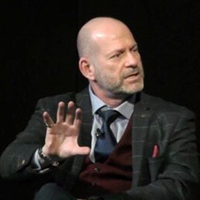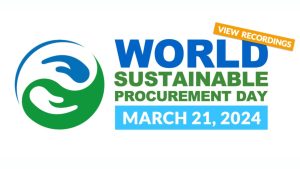 In last month’s SmartProcurement newsletter, contributor Sheldon Mydat, Founder and CEO of Suppeco, pointed out examples of legislation being passed or planned by many countries across the world to deal with a lack of transparency and ethical practices, and the dire need for sustainable supply chains to address the real risks threatening human rights and the environment. Germany, Norway, the UK, Canada, and parts of Australia and the USA, are amongst them. It is certainly time for Africa to take up the cudgels too.
In last month’s SmartProcurement newsletter, contributor Sheldon Mydat, Founder and CEO of Suppeco, pointed out examples of legislation being passed or planned by many countries across the world to deal with a lack of transparency and ethical practices, and the dire need for sustainable supply chains to address the real risks threatening human rights and the environment. Germany, Norway, the UK, Canada, and parts of Australia and the USA, are amongst them. It is certainly time for Africa to take up the cudgels too.
Why are governments around the world suddenly cracking down on supply chains? Well, not so suddenly, really. You may remember back in 1996, one of America’s sweethearts of the moment, Kathie Lee Gifford, co-host of a popular talk show Live! with Regis and Kathie Lee, catapulted sweatshops into the news. Now, two and a half decades later, supply chain atrocities still run rampant throughout the industry.
Sedex, a leading online platform that helps companies manage and improve the working conditions within their supply chains, highlights the repercussions of the previously mentioned LCCS (low-cost country sourcing) trends that have been splashed all over headlines.
“Human rights groups, the [London-based] FCA (Financial Conduct Authority) media, and whistle-blowers frequently highlight social issues in the apparel manufacturing industry such as excessive overtime, low wages, poor access to social security provisions, verbal and sexual harassment, and forced labour.
“Complex global supply chains, insufficient enforcement of labour laws, and focus on low-cost production hinder brands’ ability to identify and resolve problems within their supply networks.”
Sedex points specifically to the fast fashion model as being linked to significant social and environmental risk. “Items are low cost to consumers often at the expense of garment workers’ wages. Increased pressure on production targets means increased risk to workers health and safety. Emphasis on high output uses vast amounts of natural resources and produces increasing volumes of waste and pollution.”
The food sector is another industry ripe with supply chain risk – the child slavery lawsuit against the chocolate giants, the latest example to gain media attention. And of course, the much talked about documentary Seaspiracy further highlighted the need for complete supply chain transparency, and traceability, from dock to fork.
Frictionless Access— Palpable Collaboration, At Every Level
Transitioning from a mindset of managing supply partners to cultivating an innovative ecosystem of accountability and continuous improvement grounded in hard data requires supportive frameworks that provide both big picture analysis and granular visibility.
Whether it be a long list of compliance requirements where ongoing activity calls for contribution by responsible parties (e.g. to provide photographic evidence as proof of working conditions) or Corporate Social Responsibility (CSR) KPI’s deployed and regularly monitored for progression, all must be discussed, reviewed and tracked for progress, as a group.
Supply chain management, however, is about much more than just data.
Thus also a frictionless platform minimising barriers to engagement, Suppeco was created on the basis that relationships are at the heart of all initiatives. The platform provides a dynamically structured framework that nurtures trust through reciprocal access designed to enable real-time granular and actionable visibility. Suppeco majors in meaningful collaboration to support innovation (and growth) across a more sustainable ecosystem and supply chain.
Procurement and supply chain teams are at the epicentre, the ring leaders, if you will, of organisational initiatives that look to drive more sustainable ways that uphold company values while meeting overreaching company objectives. To win, they must leverage the right technologies that remove barriers and allow for easier, frictionless and effective ways of working for all.
Read part one: It’s Time – Actionable Visibility for Sustainable Supply Chains
By Sheldon Mydat, Founder and CEO of Suppeco, London, United Kingdom



























